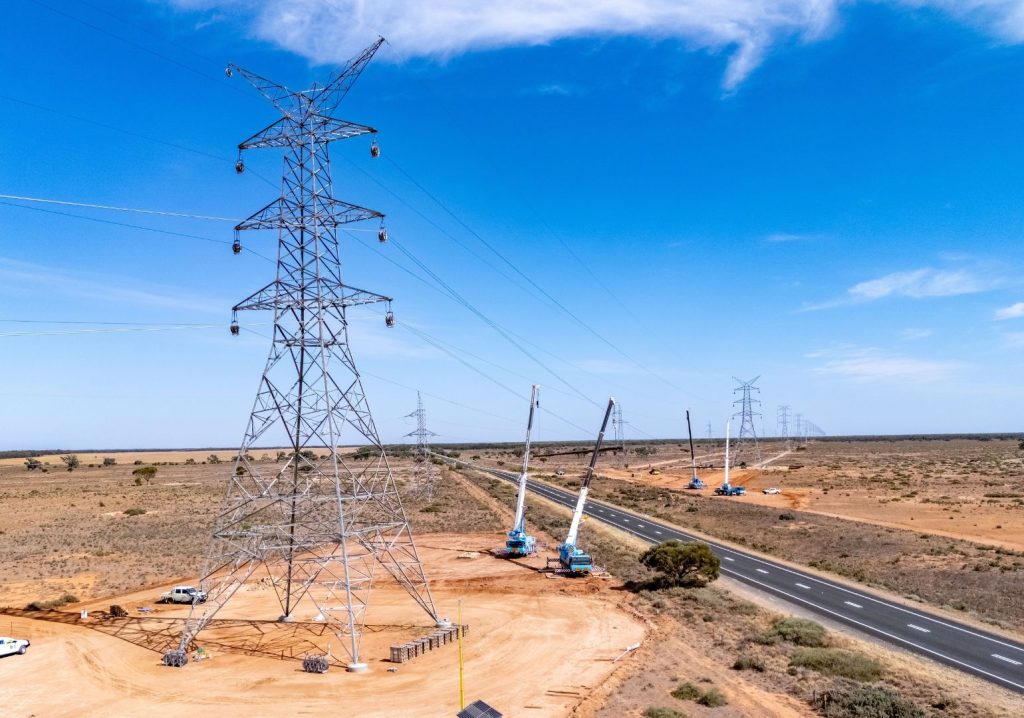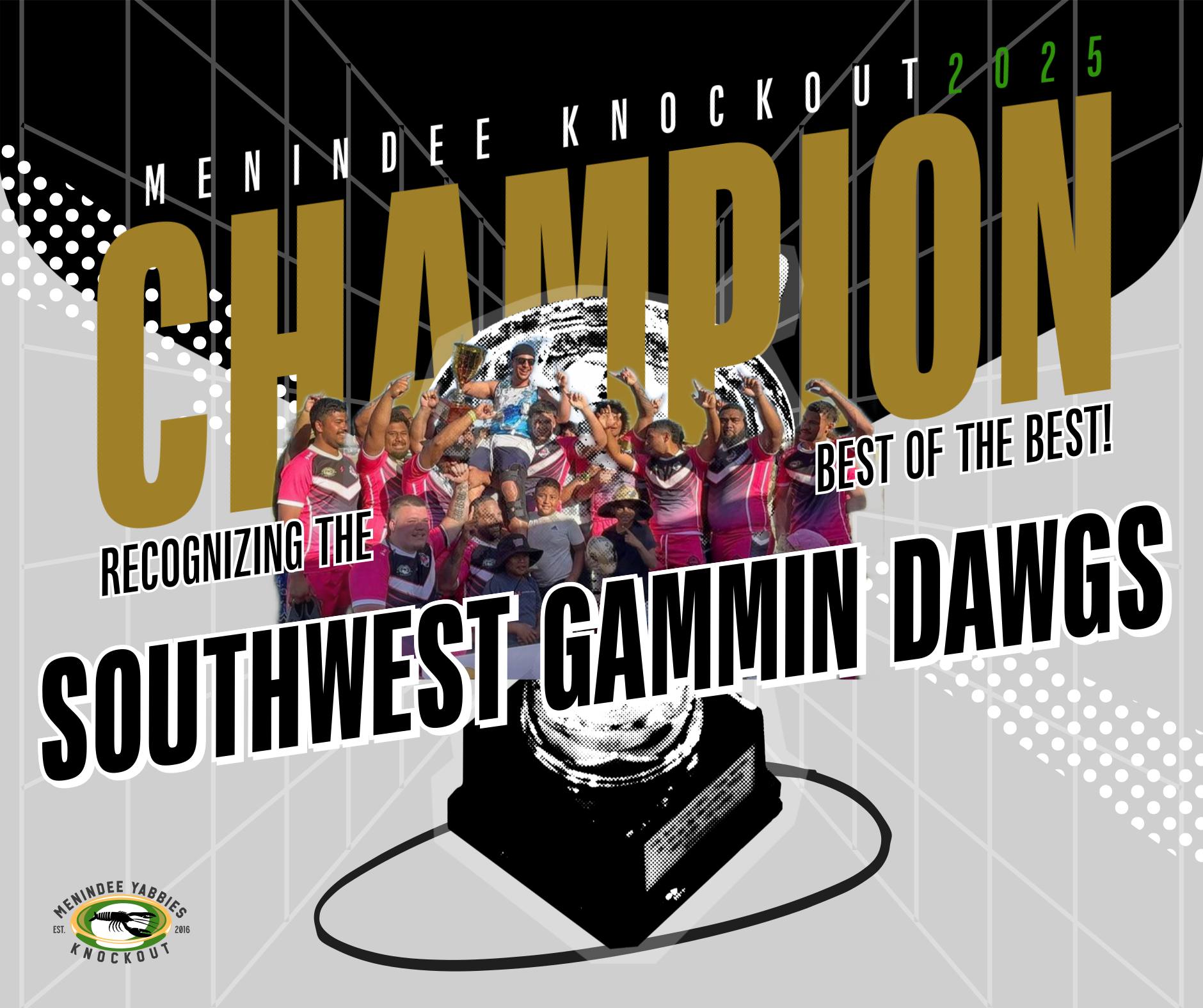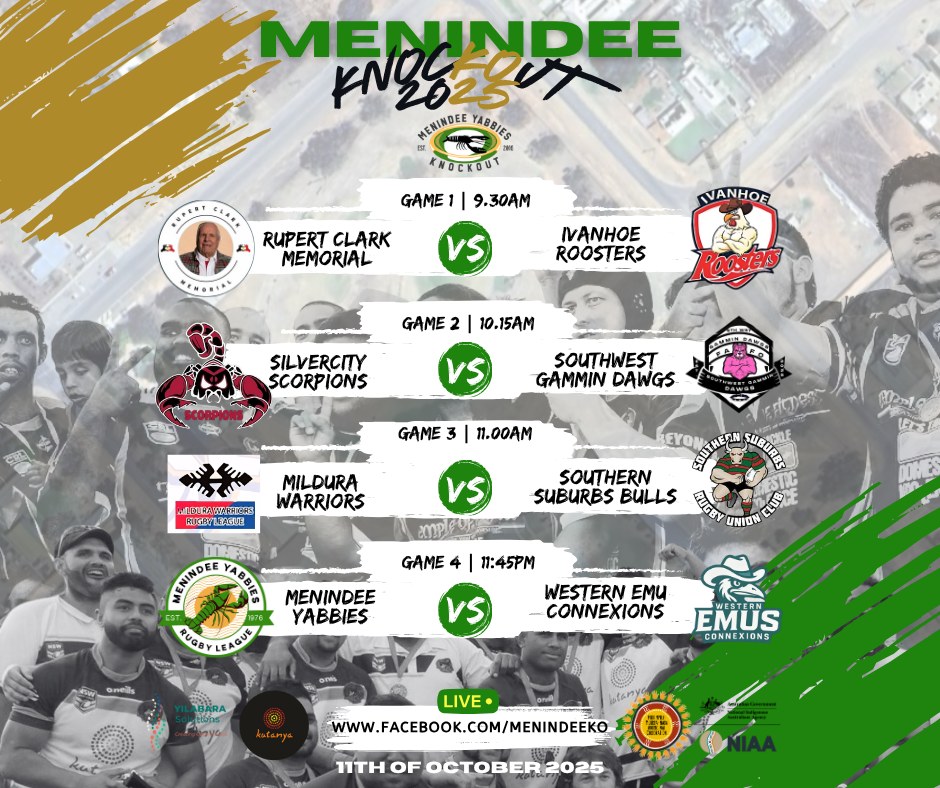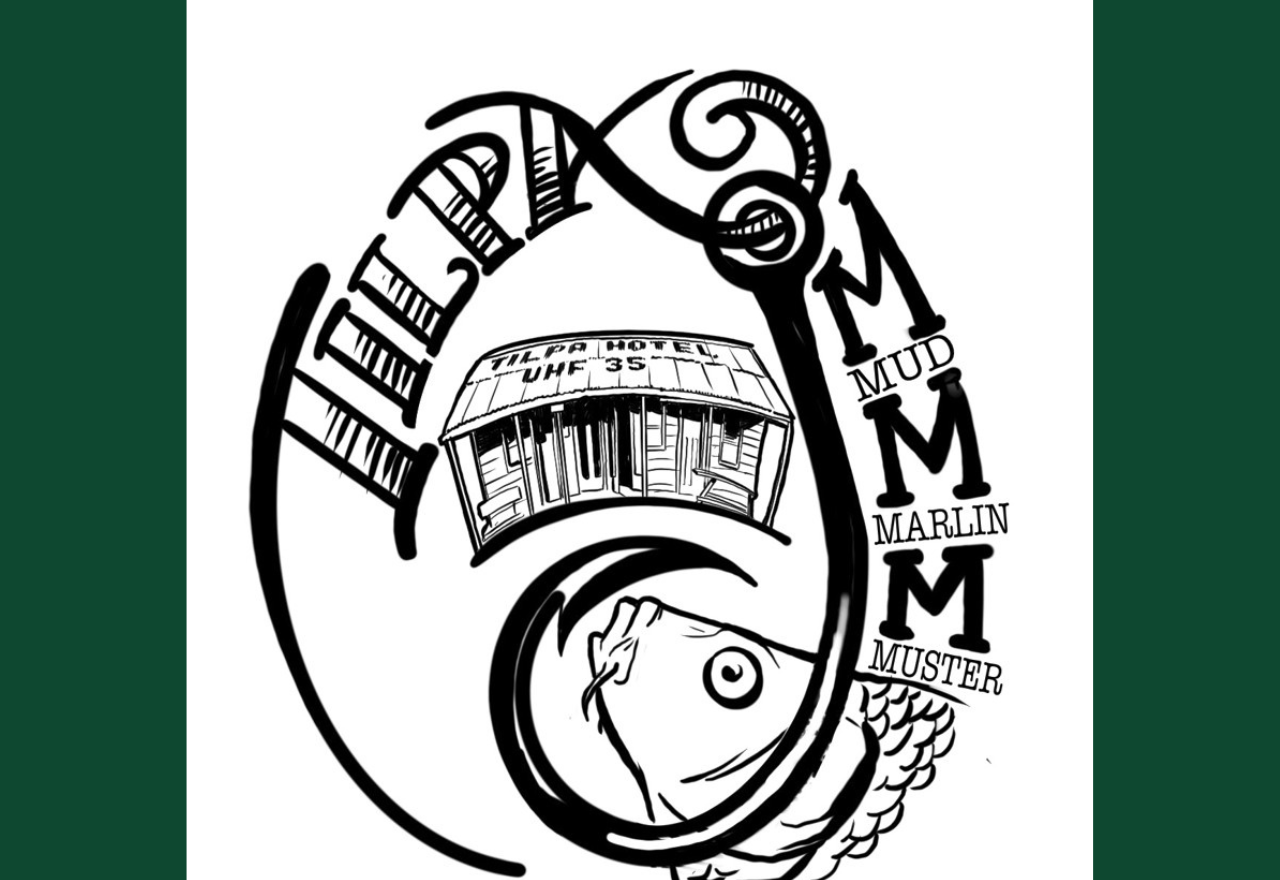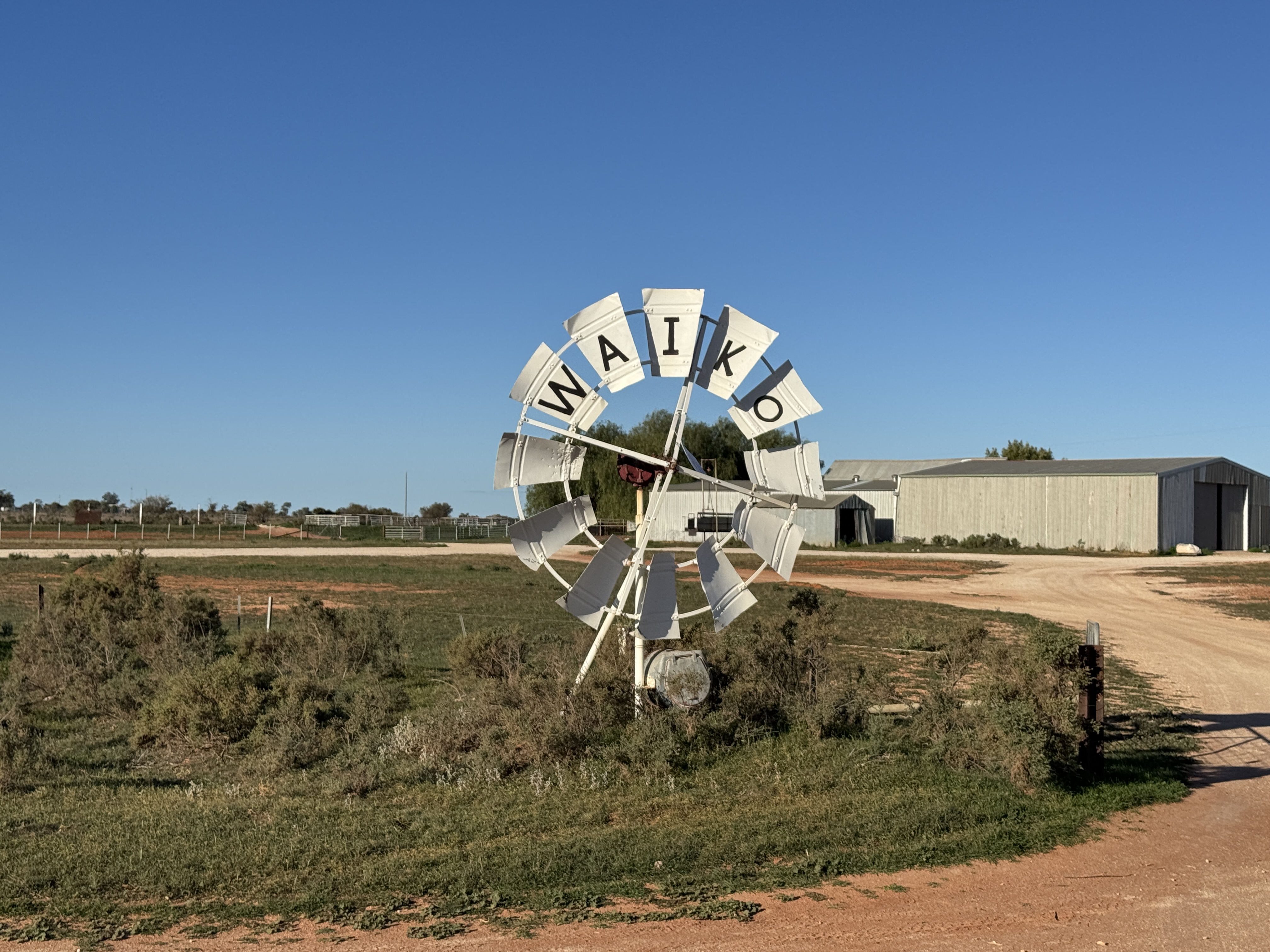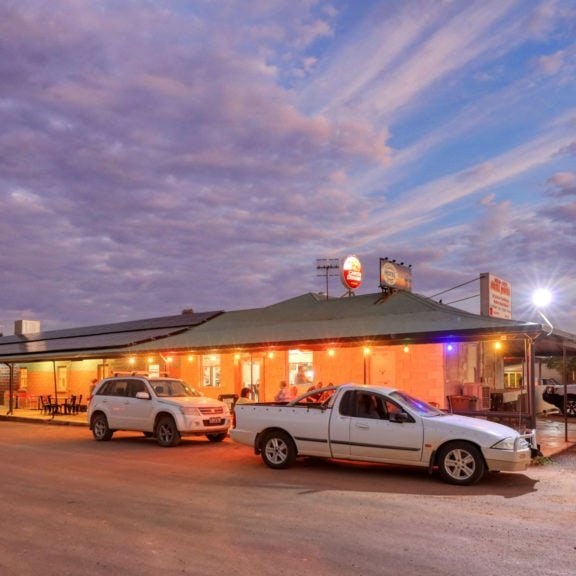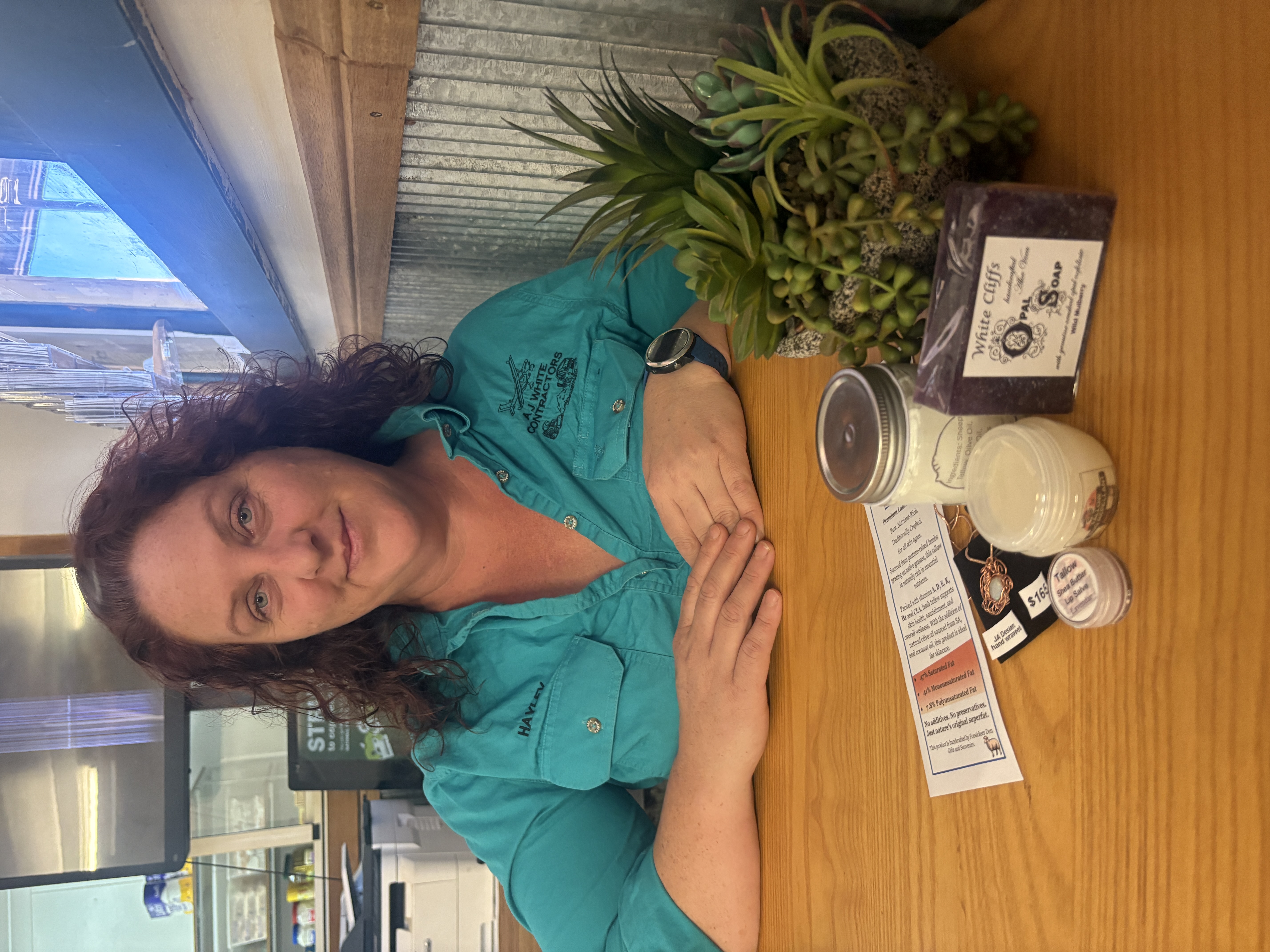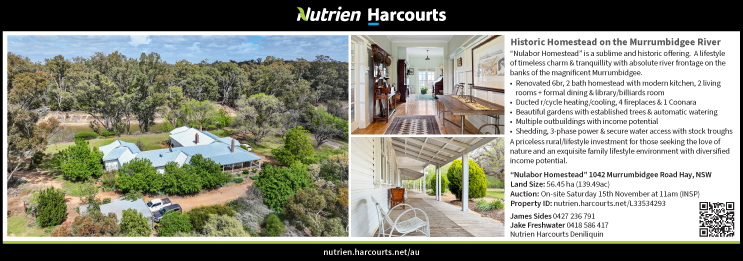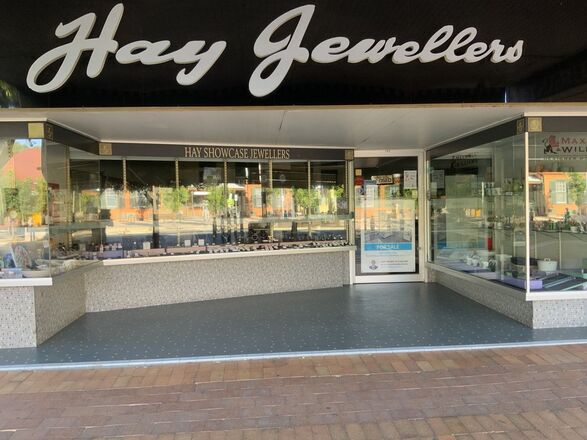The White Cliffs dream: a story of community, adventure and finding home
Kimberly Grabham
27 October 2025, 4:00 AM
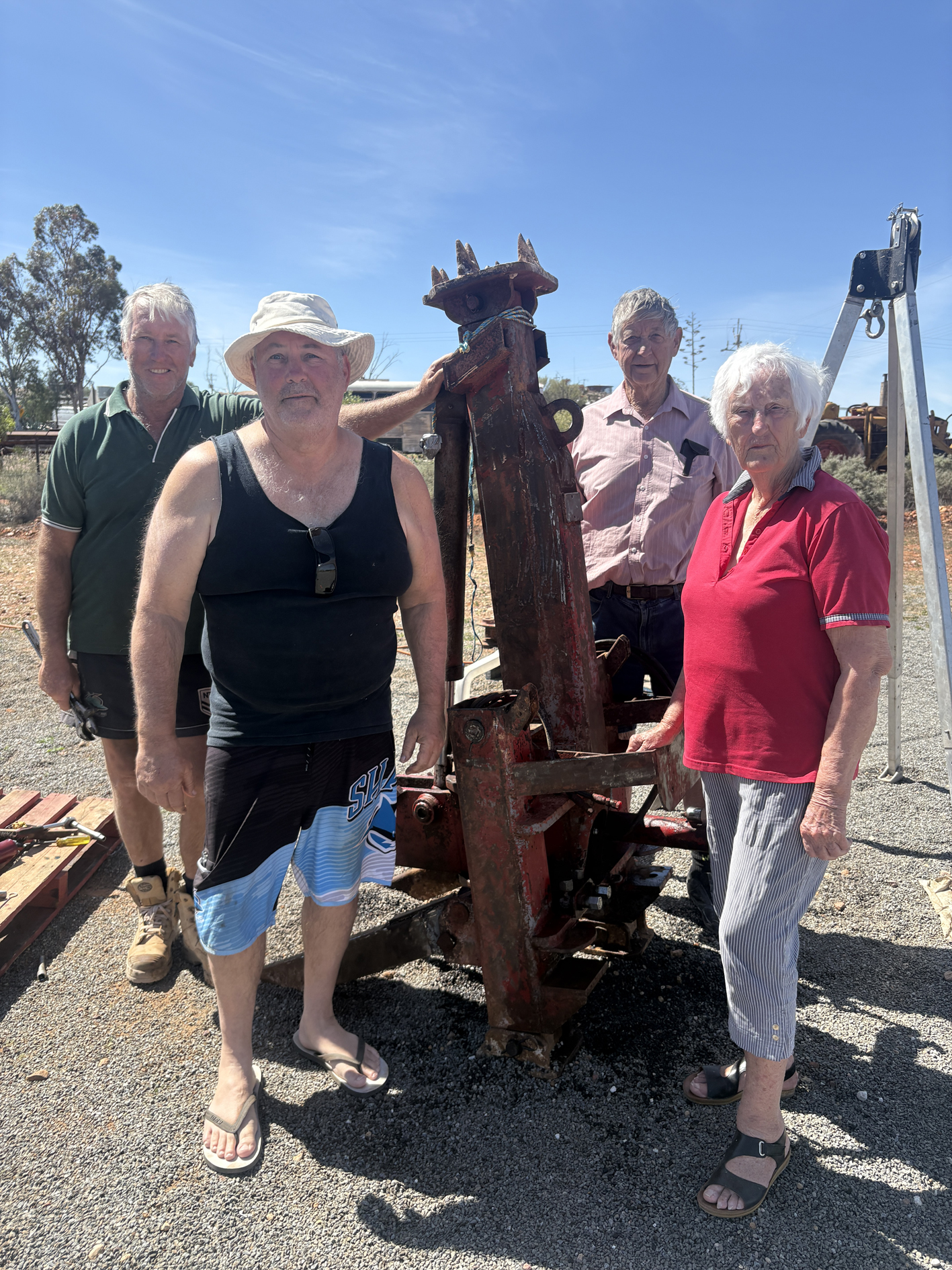
Twenty years ago, Adrian never imagined that a casual conversation with a mate would lead to one of the most fulfilling chapters of his life.
As a police officer stationed in Broken Hill in the 1990s, he'd volunteered for the remote posting because of family connections to Menindee.
His cousins ran the local pubs, and he'd been visiting the area since childhood.
The country called to him in a way that city life never could. It was through his police work that Adrian met Chris, another officer he was training in Broken Hill.
Chris, an ex-Army man, had caught the opal fever and taken up a mining claim. "Why don't you have a go?" he suggested to Adrian one day.
It seemed like a reasonable idea, a way to supplement income and try something completely different.
What started as a weekend hobby soon became something involving the whole family.
Adrian's parents Kevin and Wendy, originally from Port Macquarie, first came out to White Cliffs to have holidays and help Adrian, and they went back to Port Macquarie less and less.
Raised on a farm, his parents understood the appeal of quiet spaces and hard work.
The remote, peaceful environment of the opal fields suited them perfectly. In those early days, everything was basic.
They lived in caravans, cooked over open fires, and hauled dirt up from underground mines bucket by bucket using a simple winch.
Adrian would descend into the earth with a jackhammer, listening for the telltale sound of hitting opal; like striking glass in the darkness.
It was backbreaking work, but there was something deeply satisfying about it.
Kevin brought his own remarkable story; he was one of the few people in Australia to have carried the Olympic torch twice, first in 1956 as a 15-year-old athlete in Melbourne, then again for the Sydney Olympics in 2000.
A former New South Wales sprint champion and professional runner, Kevin had traded a potential Olympic career for love, unable to face moving to Sydney for football contracts.
It turned out to be the right choice; he'd never have met his future wife otherwise.
As the years passed, their operation grew more sophisticated.
The hand-hauled winch gave way to tippers, then super tippers with bigger buckets.
They acquired a digger, a bogger, and all the machinery that makes modern opal mining possible. That old winch? It became their barbecue, a practical repurposing that perfectly captured their approach to life out there.
The 2009 dust storm marked a turning point.
Living in their caravan with its annex, they were nearly blown to New Zealand as millimetres of dust covered everything.
"If you want me to come out here and cook," Wendy told the men, "we're going to have to do something better than this."
That led them to discover a tin shed on a nearby hill, eventually sharing it with the owner from Cobar.
Suddenly they had hot showers, a gas stove, and a proper donkey, a 44-gallon drum setup that heated water for their camp.
But it was Adrian's remarkable fossil discovery that truly captured the magic of their new life.
Working alone in the mine, he heard that distinctive chink of hitting something different.
What started as a piece the size of a grain of rice led to excavating a tunnel and uncovering a foot-long opal fossil of a fish, complete with about 40 pieces of opal, some in full crystal colour.
Worth around $30,000, it represented not just financial reward but the kind of once-in-a-lifetime discovery that keeps every miner hoping.
Their family expanded when Kevin's son Stephen met Jackie, a remarkable woman with her own compelling story.
Despite the hardships of her early life, boarding school in Cape Town and life in Rhodesia, she brought intelligence, warmth, and skills to their tight-knit group.
What they discovered over the years was that they weren't just mining opal, they were building a community.
White Cliffs attracted retired professionals; teachers, engineers, police officers, mechanics, Vietnam veterans finding peace in the quiet vastness.
Everyone helped everyone else. If someone's truck broke down, a retired mechanic would appear.
If equipment needed moving, neighbours would pitch in.
The women formed craft groups while the men gathered in what Wendy laughingly called "the big man shed," pulling apart engines and sharing decades of accumulated knowledge.
The community spirit extended beyond the mining camp. They'd work cattle stations for no pay, just to help out and get access to yabbying spots, bringing back fresh yabbies to share with everyone.
They'd travel together, month-long fishing trips to South Australia, drives to Western Australia, adventures to Queensland.
It wasn't just about the mining anymore; it was about a lifestyle that valued relationships, mutual support, and the freedom to move at their own pace.
"White Cliffs time," they called it; the luxury of not being rushed, not being angry about traffic or work pressures.
When they returned to Port Macquarie, even to one of New South Wales' most beautiful coastal areas, they'd find themselves thinking, "Oh God, back to this place again."
The contrast was stark; city life felt frantic and impersonal compared to their chosen home.
This was a place where Wendy, who had never painted in her life, could discover artistic talents, creating beautiful landscapes of the country that now owned her heart.
Where retired athletes like Kevin could share stories of professional running circuits from the 1800s, when bookmakers took bets on foot races across rural Australia.
Where Adrian could apply his police training to understanding the complex regulations that increasingly governed their hobby.
For most of them, mining had become exactly that; a hobby rather than a livelihood.
They were pensioners now, people who had worked their careers and earned their retirement.
The opal mining gave them purpose, excitement, and the possibility of discovery, but it wasn't about money.
It was about staying active, staying curious, keeping their hands busy and their minds engaged.
The lifestyle attracted people from all walks of life, but particularly those who had served their country or their communities.
Vietnam veterans found peace in the vast, quiet landscape.
Former police officers, teachers, and tradespeople discovered that their skills were still valued in this small community where everyone looked after everyone else.
Living conditions evolved from basic caravans to comfortable homes, but always with an emphasis on practical simplicity.
Tank water for drinking, town water for washing, septic systems, and the kind of self-reliance that comes naturally to country people.
They learned to read the signs of the country, when dust storms were coming, where to find the best yabby spots, how to navigate the old mining areas where Chinese prospectors had left round holes and coins from the 1800s.
Despite facing significant bureaucratic challenges in recent years, legislation changes that effectively shut down most mining operations, their love for the place and lifestyle remained unshaken.
The community adapted, found other ways to stay busy, supported each other through legal battles and uncertainty.
Some, like their neighbours who lived on mining claims for 30 years, decided to buy land nearby rather than face the uncertainty of changing regulations.
What they'd discovered was that they'd come for a dream of finding opal but stayed for something much more valuable, a way of life that emphasised community, self-reliance, and the deep satisfaction of useful work.
In their 70s and 80s, they were living proof that retirement doesn't have to mean slowing down.
Whether it was Kevin climbing ladders, Bert fixing cars, or Smiley renovating his new house, they'd found purpose and joy that kept them vital and engaged.
The harsh beauty of the landscape, the genuine warmth of the community, and the freedom to live by "White Cliffs time" had given them something precious; the chance to age with dignity, purpose, and the support of people who truly cared about each other.
They'd found a place where being in your 80s didn't mean being sidelined, where accumulated knowledge was valued, and where every day held the possibility of discovery.
As Wendy reflected, apart from the legislative challenges, they were living their dream.
Not the dream they'd originally envisioned, that simple hope of finding opal, but something far richer.
They'd found home, community, and a way of life that proved retirement could be not an ending, but a beginning. In the red dirt and vast skies of White Cliffs, surrounded by people who'd become family, they'd discovered that the real treasure wasn't underground at all.
It was the life they'd built together, day by day, season by season, year by year, a life better than they could ever have imagined when they first heard that winch creaking in the desert wind, hauling up bucket after bucket of earth and hope.
NEWS
SPORT
RURAL
COMMUNITY
FOR SALE
